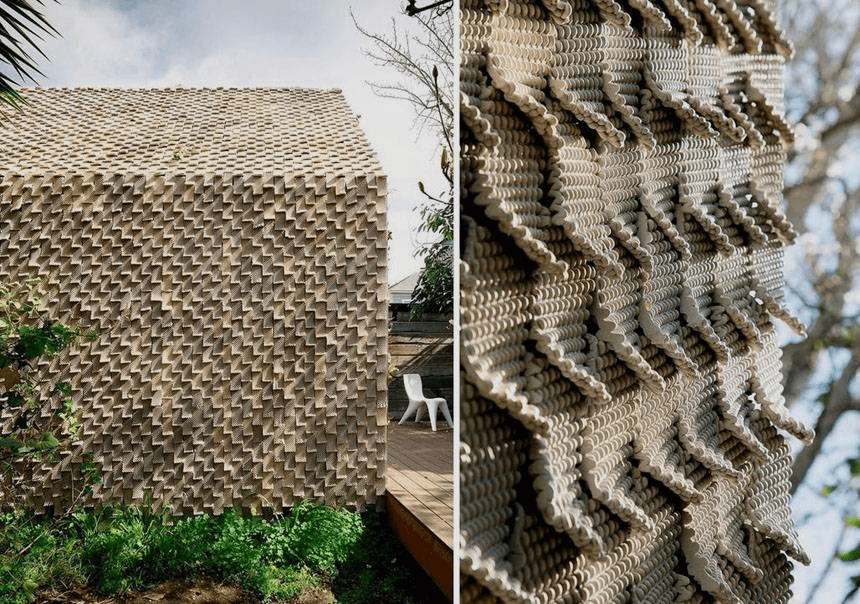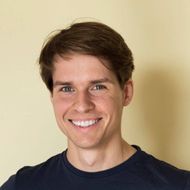The research Project `Urban Modularity` on ceramic 3D printing, design and production of innovative urban elements will be held in Shukhov Lab in Summer of 2020.
The goal is to rethink existing modular objects in the city and offer new morphologies in response to modern challenges of ecology and society.
The following educational events will be provided as a research project parts:
- Webinars with international speakers
- Three two-days workshops
- Two-week summer school.
School’s participants will research and learn:
- Rhinoceros and Grasshopper 3D software
- 3D printing technology and digital production methods
- New possibilities of ceramic-based materials and structures to create sustainable architecture and urban environment
- Printing a series of functioning ceramic prototypes.

Technology: 3D printing with ceramic paste
Emerging objects
Urban Modularity
'Under digital technologies development, new ideas for organizing space arise - architects and scientists are constantly searching for new geometries, materials, structures. Global environmental challenges connected with climate changes dictate how to use natural materials and hybrid structures, allow them to respond to atmospheric conditions and control them. In this regard, some topological design methods associated with parametric design and 3D printing technologies allow us to create architecture that combine non-linear bio-, zoo-, cybermorph aesthetics, high technologies and materials, thereby contributing to improving the quality of an urban environment'. Budnikova A., 2016.
`Urban Modularity` is aimed at identifying new morphologies of standard modular urban elements, such as bricks, facade blocks, street furniture, etc. in order to identify new features of constructions, optimize the climatic conditions in the building, production process of typical elements and their quality. The event addresses both the possibilities and ways of introducing new technologies in an urban environment, as well as exploring the potential of environmentally friendly materials, in particular, famous ceramics. In addition, alternative methods of 3D printing technology with fungal mycelium and its perspectives will be considered and discussed.
Research Areas
- Morphology of buildings and streets’ structural modules (brick, tile, blocks)
- New eco-friendly materials suitable for 3D printing (bioceramics, bioplastics, mycelium)
- Built-in objects (elements of destroyed buildings, modular balconies and apartments in response to population growth, etc.)
Research Objectives
- To identify the possibilities of applying 3D printing technology in an urban environment
- To identify new physical properties of materials and structures based on ceramics
- To identify the ways of non-waste and efficient production
Estimated Results
A series of ceramic prototypes that reflect a specific innovation in an urban environment, such as changing climatic conditions or sound climate in the building, optimizing the buildings reconstruction process, etc.
According the current epidemiological situation, the dates of the events will be announced later.
-
Webinars programme
Register now for webinars programme with international leading experts to prepare yourself to Shukhov Lab Research School.
-
Preparatory stage
Equipment preparation. Materials. Test printing.
Private stage. Follow the process at instagram @shukhov_lab.
-
Workshop 1: Personal Fabrication
Introduction: Introducing 3D Printing Technology and Materials
Registration is open to all participants.
Registration for the Workshop 1
-
Workshop 2: Bioceramics and 3D printing by mushroom mycelium
Search for new materials: tests, experiments, 3D printing
Registration is open to all participants.
Registration for Workshop 2
-
Workshop 3: 3D-printing in space and remote locations
Development prospects
Registration is open to all participants.
Registration for the Workshop 3
-
Summer School: Urban Modularity
- Introductory lectures by invited speakers and experts
- Brainstorming: Ideas and hypotheses about 3D printing technology application in the city, the participants’ choice of research field
- Data collection at an urban environment
- Experiments and prototyping
- Printing the final series of ceramic prototypes
- Preparation for the exhibitionThe summer school is focused on architects, designers, specialists in urban planning and urban studies; as well as engineers, ecologists and specialists in the field of materials science. A basic 2D / 3D design knowledge and innovative thinking are required. In addition, a personal laptop is welcome.
To participate in the summer school you need to fill out an online form with basic questions on the above mentioned topics, upload a portfolio.
Curators
Technologist, specialist in 3D printing and ceramics, Shukhov Lab leading expert

Architect, researcher, founder | managing partner of M-A SPACE
Partners
TBA
